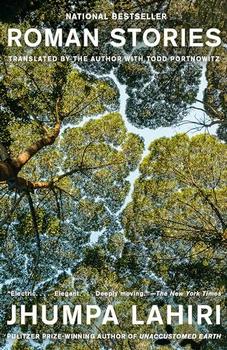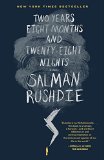Summary | Excerpt | Reading Guide | Reviews | Beyond the book | Read-Alikes | Genres & Themes | Author Bio

Five Stories of Music and Nightfall
by Kazuo IshiguroLike many of Kazuo Ishiguro's widely-acclaimed novels, Nocturnes charts the nature of shifting relationships, the passage of time, real and perceived failures, the consequences of deferred dreams, feelings of estrangement, and the quiet but destructive erosion that occurs when truth is denied for too long, yet it does so with more attenuated gestures and less reflection.
In "Crooner" and "Nocturne" a singer and a saxophone player attempt to revitalize their careers by changing their lives. Though we may expect a certain degree of typecasting, these characters never entirely move beyond our preconceptions of Hollywood "has-beens" to become empathetic figures, nor do they push towards the extreme edge of the grotesquely satirical, as Gloria Swanson does in the role of Norma Desmond (Sunset Boulevard, 1950). While plots about careers in decline could be made more resonant by either a sense of revelation or an acerbic wit, Ishiguro offers neither. The stories remain closer to the anecdotal, as the narrators recall incidents and conversations. Criticisms about a system that sometimes appears to reward attractive personas more than talented ones is also familiar. Despite such lapses, the author raises insightful and often probing questions regarding the tendency to draw distinctions between art and entertainment, the lengths some will go to achieve a goal, and the problem of deciding when "selling out" is a necessary strategy and when it means that a vision has been compromised, if not abandoned. These questions, among others, linger throughout the subsequent stories, though they remain mostly unanswered.
"Cellists" explores how the desire for musical virtuosity leads one woman to lie, while "Malvern Hills" features a young guitarist and songwriter whose talent is matched by his ego. The woman believes she has not "unwrapped" her talent for playing the cello because no teacher could ever understand her; the man attributes his lack of participation in a band to the "utterly rotten" and "extremely shallow and inauthentic" perspective held by the London crowd. Both characters treat music as an endeavor that only the privileged could appreciate. Their bravado is tempered by an appealing vulnerability, making their stories the strongest in the collection.
Music figures less prominently in "Come Rain or Come Shine." Neither an accomplished nor an aspiring artist, the narrator is a middle-aged aficionado of nostalgic music. He has been invited to the home of his married friends, but soon discovers that the invitation was an orchestrated attempt to have him serve as a foil for the husband rather than a sign of goodwill. What could have had potential as a multi-layered portrait of fragile friendships bound more by habit than by a deep-seated respect becomes a simpler effort to find comedy in the midst of pain. Much of the story unravels when the narrator attempts to cover a faux-pas by casting blame; the effect is less humorous than intended. One of the more intriguing aspects of the story remains unexplored, but reiterates the belief that music is exclusive. When the husband advises the narrator to refrain from bringing up the subject, we're left to wonder why the knowledge of somewhat obscure albums or someone else's tastes could be regarded as threatening.
Though the characters are occasionally burdened by selfish motivations or repetitive scenarios, the struggles they experience highlight the uses of music as a balm, an idea that is found in each of these stories. Ishiguro reminds us that songs can easily become conveyances for memory, momentary forms of escape, or backgrounds for climactic moments. Fans of his novels may enjoy the change of pace offered by this debut, but newer readers may prefer to begin with his previous works, which better exemplify his talents.
![]() This review was originally published in The BookBrowse Review in November 2009, and has been updated for the
October 2010 edition.
Click here to go to this issue.
This review was originally published in The BookBrowse Review in November 2009, and has been updated for the
October 2010 edition.
Click here to go to this issue.

If you liked Nocturnes, try these:

by Jhumpa Lahiri
Published 2024
The first short story collection by the Pulitzer Prize–winning author and master of the form since her number one New York Times best seller Unaccustomed Earth • Rome—metropolis and monument, suspended between past and future, multi-faceted and metaphysical—is the protagonist, not the setting, of these nine stories

Two Years Eight Months and Twenty-Eight Nights
by Salman Rushdie
Published 2016
From Salman Rushdie, one of the great writers of our time, comes a spellbinding work of fiction that blends history, mythology, and a timeless love story. A lush, richly layered novel in which our world has been plunged into an age of unreason, Two Years Eight Months and Twenty-Eight Nights is a breathtaking achievement and an enduring testament to...
Your guide toexceptional books
BookBrowse seeks out and recommends the best in contemporary fiction and nonfiction—books that not only engage and entertain but also deepen our understanding of ourselves and the world around us.